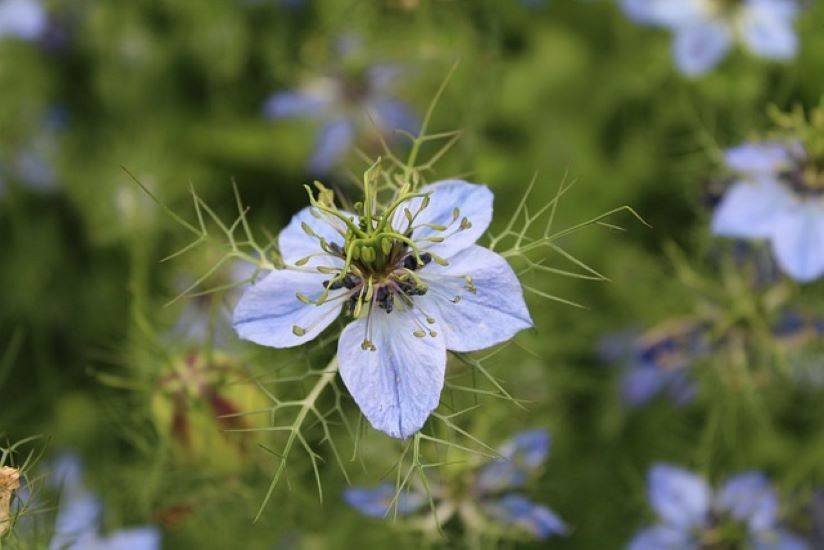
Scientists from Sher-e-Kashmir University of Agricultural Sciences and Technology, Kashmir (SKUAST-K) and the Mountain Agriculture Research and Extension Station (MARS) have successfully preserved and domesticated organic black cumin in the Gurez Valley of north Kashmir's Bandipora district. The team utilized scientific techniques and conducted awareness campaigns among farmers to maintain the organic nature of horticultural and agricultural products in the region.
The project, initiated in 2019 under the leadership of Chief Scientist Prof Muhammad Anwar Khan, aimed to uplift the socio-economic status of the community by harvesting naturally grown black cumin and preserving indigenous varieties through germplasm preservation techniques. The centers collected mature tubers from different mountainous areas and cultivated them in designated locations.
Bilal Ahmad Bhat, Head of the Mountain Agriculture Research and Extension Station, explained that the spice's performance and various parameters, including aroma and nutritional values, were tested in laboratories. The team campaigned against the immature harvesting practice prevalent among the natives, which resulted in damage to seeds and tubers. By halting this practice, they successfully preserved the natural asset through indigenous biodiversity conservation.
To facilitate domestication, mature seeds and tubers were collected from the wild habitations and planted at the station and Dawar. From thousands of collections, 253 selections were made based on their unique characteristics and production quantity. About 102 varieties showed doubled production quantities of 4 to 5 grams. These unique selections were preserved at the National Germplasm Repository in New Delhi.
Farmers living near the mountains, particularly in Nayle village, were educated about the proper cultivation techniques and provided with tubers to grow in their kitchen gardens. This approach proved successful, as the spice thrived in the kitchen gardens and other areas. Inspired by the project's achievements, locals started cultivating the spice naturally. Khadija, an elderly woman, even fenced an area on a nearby hill to create a natural habitat for black cumin, earning praise from the SKUAST-K Vice-Chancellor.
Prof Muhammad Anwar Khan expressed his belief that this practice would continue and benefit farmers. The market value of black cumin is estimated at Rs 8,000 per kilogram. The hybrid varieties, including SKAUST-K's Kala Zeera-I, have a yield performance of 200 kilograms per 2.5 acres of land, while other selections from the department range between 250 and 300 kilograms. The most promising selections may be introduced as varieties in the coming years.









